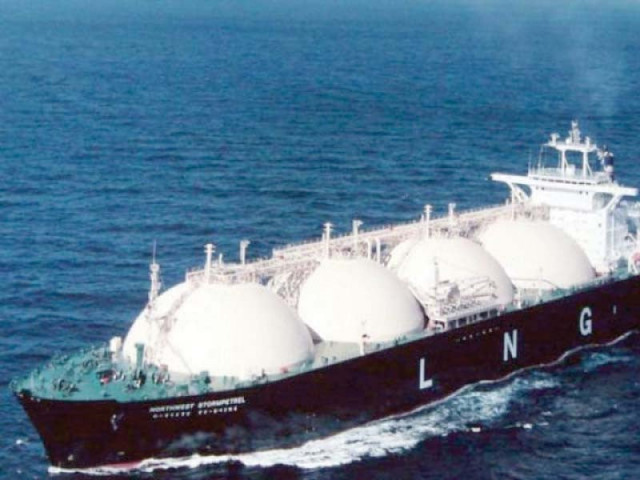Rs26b sought for LNG subsidy
Money will be used to clear claims of state-owned utilities

The Petroleum Division is seeking the release of Rs26 billion to clear pending subsidy claims on account of liquefied natural gas (LNG) supply to export-oriented sectors to avoid default on payments to the international LNG suppliers.
Earlier, the Petroleum Division sent a summary to the Economic Coordination Committee (ECC), seeking allocation of Rs41 billion for clearing the dues of state-owned utilities on account of subsidy for the export-oriented industries. However, the ECC gave directives to submit a fresh summary.
Now, the division is demanding an allocation of Rs9.525 billion for the supply of gas/ re-gasified LNG to the export sectors and Rs17.043 billion for the March-June 2022 period.
The ECC, in its meeting held on January 5, 2022, while considering the proposals submitted by the Petroleum Division, agreed that Rs21.335 billion may be approved as a supplementary grant to pay off the outstanding claims for gas/ RLNG supply to the export sectors.
It also approved Rs11 billion in supplementary grant as per demand of the Ministry of Industries and Production to clear arrears as well as provide subsidy for December 27, 2021 to January 10, 2022, which was estimated at Rs4.963 billion.
It allowed Sui Northern Gas Pipelines Limited (SNGPL) 100% RLNG supply during March as in the absence of locally produced gas the company was constrained to supply RLNG against the approved supply mix of indigenous gas and RLNG with a proportion of 50:50.
With respect to the proposal of supplementary grant of Rs41.007 billion, the ECC directed the Petroleum Division to submit a fresh proposal, in consultation with the Finance Division, for its consideration.
In pursuance of the ECC directive, the matter of supplementary grant for the period December 2021 to June 2022 was referred to the Finance Division, which conveyed that the Petroleum Division may prepare a fresh proposal for funding the projected subsidy claims in compliance with the ECC decision and subject to the condition that the Petroleum Division shall conduct an energy efficiency audit of all captive power plants in compliance with the Cabinet Committee on Energy (CCOE) decision of June 2020.
The Petroleum Division has now estimated a subsidy requirement of Rs26.589 billion for the period November 2021 to June 2022 considering the verified claims submitted by SNGPL for the period December 2021 to February 2022.
SNGPL purchases LNG from Pakistan State Oil (PSO) and Pakistan LNG Limited, who buy the gas from international suppliers.
The executed contracts require fortnightly clearance of invoices upon receipt/ unloading of an LNG cargo. Thus, the delayed release of subsidy puts financial burden on both the LNG importers, besides limiting their ability to purchase more cargoes.
At present, SNGPL is a major defaulter of PSO and has to pay over Rs270 billion to the oil marketing company. PSO has a long-term LNG supply contract with Qatar and is required to make timely payments to the LNG supplier.
SNGPL is also facing financial crunch as it is awaiting payment of billions of rupees by domestic consumers and subsidy claims by the government.
The government had diverted LNG to the domestic consumers in winter season in a bid to overcome gas shortages. However, SNGPL is paying a heavy cost of diverting gas to the domestic consumers as there is no legal framework in place to recover dues from them.
Recently, the government managed to pass the Weighted Average Cost of Gas (Wacog) bill in parliament. However, it has been challenged in the Sindh High Court and the Sindh government has also opposed the bill.aq
Published in The Express Tribune, April 6th, 2022.
Like Business on Facebook, follow @TribuneBiz on Twitter to stay informed and join in the conversation.


















COMMENTS
Comments are moderated and generally will be posted if they are on-topic and not abusive.
For more information, please see our Comments FAQ